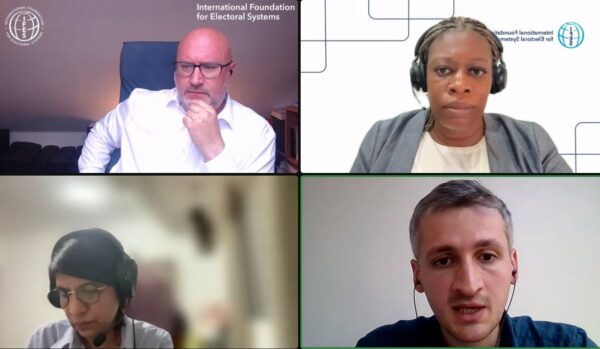19 July 2023 –
In the lead-up to the 10th Conference of the States Parties (CoSP10), the UNCAC Coalition held a conference titled “Our Global Coalition Conference – The Road to CoSP10” (GCC) from 27 to 29 June 2023. The conference brought together our membership and other interested members of civil society to coordinate advocacy on five key topics – whistleblower protection, political financing, procurement, beneficial ownership transparency, and civic space. The sessions were attended by around 40 to 60 participants who showcased their experience in panel discussions and breakout rooms and came up with concrete action points.

Richard Nephew, Coordinator on Global Anti-Corruption from the US Department of State, gave a keynote speech, highlighting that championing the role of civil society in the fight against corruption is a core US priority in general and at the CoSP. All civil society stakeholders, even the ones who are not accredited to the CoSP, can join the Civil Society Forum on 10 December, which is a chance to exchange and share our work.
Gillian Dell, Head of Global Advocacy at Transparency International and Co-Chair of the UNCAC Coalition, reminded us that it takes time to make progress in the fight against corruption, but persistence and working in civil society networks will help us achieve more transparency, accountability and civil society participation. Though imperfect, the UNCAC review mechanism is one chance to contribute to anti-corruption efforts, and this year, discussions on a future review phase will begin. We should advocate for a strong monitoring and follow-up mechanism, of both the recommendations coming out of UNCAC reviews and of the higher standards achieved in the UNGASS Political Declaration, with the participation of civil society.
Whistleblower Protection Session
Moderated by Pusetso Morapedi, Southern Africa Director of the Platform to Protect Whistleblowers in Africa (PPLAFF), the first conference session engaged participants in a discussion about how to better advocate for the protection of whistleblowers in and around CoSP10.
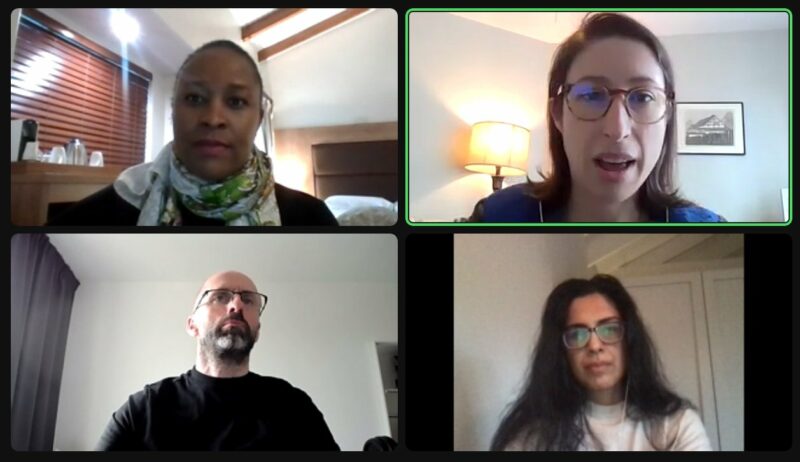
Samantha Feinstein, Staff Attorney and Director of the International Program at Government Accountability Project, highlighted three main purposes whistleblower laws should have: deter retaliators from retaliating, allow a whistleblower to feel safe while reporting, and enable whistleblowers to enforce their paper rights should they be retaliated against. John Devitt, Chief Executive of Transparency International Ireland cautioned against ‘hero worshiping’ of whistleblowers as this puts them at greater risk. The focus needs to be on the message, not on the messenger. Khadija Sharife, Senior Global investigative Reporter for Africa at the Organized Crime and Corruption Reporting Project (OCCRP) provided an interesting perspective on ‘good faith’ reporting and the ways in which reporting and working with journalists and the media to expose cases affects the whistleblower protection ecosystem.
Participants discussed a range of action points to advance whistleblower protection in the run-up to and at the CoSP:
- We should encourage governments to table a dedicated CoSP resolution on whistleblower protection.
- In our advocacy around state delegations at the CoSP, we as civil society should look into overlaps with OGP and Summit for Democracy delegates and follow up on commitments to technical assistance in advance of the CoSP. We should encourage public officials to join and participate in international NGO fora that discuss whistleblowing and share good practices at the regional level, between countries.
- Beyond that, we should involve the private sector, mobilize youths and educate journalists about the CoSP.
- During the CoSP, we should strategically use side events and government sponsors with whistleblower protection on their agenda. Civil Society Organizations (CSOs) can act as information brokers between officials from different countries, provide relevant authorities back home with updates on whistleblower protection asks and negotiations going on at the CoSP, and take advantage of side events that showcase “good performers” as speakers.
- One concrete suggestion for a resolution on whistleblowing is to have language on competent persons to address whistleblowing cases, drawing on the language of UNCAC Article 33..
Political Financing Session
The session on political financing was moderated by Uchechi Anyanwu, Senior Legal and Anti-corruption Officer at the International Foundation for Electoral Systems (IFES), who recalled that the UNCAC does not lay out clear standards in political financing. Magnus Öhman, Director of the Europe Office, and Senior Political Finance Advisor at the International Foundation for Electoral Systems (IFES) stressed that the most important element in tackling corruption related to political financing is transparency. Cynthia Gabriel, Founding Director of the Center to Combat Corruption & Cronyism (C4 Center) reported on how her organization uncovered one of the greatest political heists in Malaysia and emphasized the importance of engaging the private sector around political finance. Sandro Kevkhishvili, Anti-corruption Program Manager at Transparency International Georgia, presented two main lessons learned from TI Georgia’s experience: to make use of open datasets to analyze the flows of political funding and to use local journalists as trusted resources for the monitoring of campaign finances and the (mis-)use of administrative resources.
UNCAC article 7.3 is the only reference we have in a global document to political financing. It was highlighted as one of the articles where States stressed the need for help in implementation. We should see it as a stepping stone to push for further developments, and a dedicated CoSP resolution can be a key part of that work.
Attendees of the political financing session came up with a set of advocacy actions we should engage in before the CoSP:
- We should sensitize voters to the importance of transparency in political financing.
- In our advocacy as civil society, we need to think about how to change corporate behavior in the long run and how to bring in as many stakeholders as possible by involving the business sector and journalists and developing more capacity among civil society.
- We can also collaborate with state investigative bodies on political financing.
- We need to collect up-to-date good practices and standards for countries.
- Beyond that, we need to push for international standards and advocacy blueprints.
Procurement Session
The GCC session on procurement moderated by Kristen Robinson, Head of Advocacy at Open Contracting Partnership, focused on e-procurement as an enabler for civil society to monitor procurement processes. Andrés Hernández, Executive Director at Transparency International Colombia, reported on the backsliding of transparency in public procurement in Colombia. Siti Juliantari Rachman, Deputy Coordinator at Indonesia Corruption Watch presented good practices from her organization that include the launch of a monitoring website in Indonesia and training of more than 1000 individuals on how to monitor public procurement. Andrii Borovyk, Executive Director of Transparency International Ukraine gave a lightning talk about the ProZorro e-procurement system created in Ukraine which has been globally recognized as one of the most innovative public procurement systems, and highlighted challenges such as oversight institutions having yet to adopt a data-centered approach to identify risks.
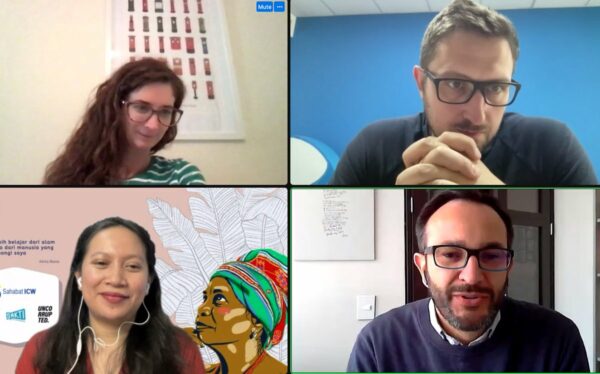
The resolution on public procurement transparency that will be tabled by France at the CoSP presents a unique opportunity for CSOs to have an impact.
- In our advocacy for more transparency in public procurement leading up to the CoSP, we should think about collaborating with American think tanks through side events. We should also think creatively beyond CoSP formalities, for instance by undertaking a massive outreach campaign or organizing a photo exhibition during the conference.
- We need to take into account the importance of beneficial ownership regimes linked to procurement to unmask conflicts of interest.
- It is crucial to assess the performance of institutions using e-procurement. Advocacy for ensuring effective compliance and control by the mandated public institutions should remain a key objective.
- We should encourage States to include procurement experts in their CoSP10 delegations in order to have these experts involved in negotiations and discussions. The CoSP resolution can also be used to organize events to bring together government officials, the private sector and civil society to build dialogue and share experiences before or at the conference.
Beneficial Ownership Transparency Session
Beneficial ownership transparency (BOT) was mentioned several times during the Global Coalition Conference as it is closely connected to other topics such as procurement or political financing. During the GCC session on BOT, moderated by Maíra Martini, Research and Policy Expert on corrupt money flows at the Transparency International Secretariat, panelists and participants discussed what we as civil society want to achieve at CoSP10. Thom Townsend, Executive Director at Open Ownership, Paul Radu, Co-Founder and Co-Executive Director with the Organized Crime and Corruption Reporting Project, and Ian Gary, Executive Director of the Financial Accountability and Corporate Transparency (FACT) Coalition, underscored the important role of public registers and the huge opportunity of the CoSP being located in the United States to elevate BOT as a priority area and engage the wider public. The main takeaway from the BOT session was that interest in a dedicated resolution requires buy-in from authorities and stronger BO registers, together with calls for public access. The need for more and better use of BO data by all State and non-State actors was stressed – investigative journalists or State oversight bodies alone will not be able to identify all corruption risks. We need to mobilize other actors, including the private sector, environmental groups, and other potential allies. It is important to understand what organizations are already planning and share more broadly between us ahead of the CoSP.
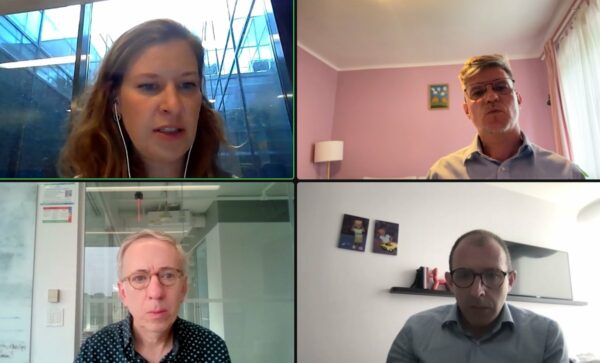
Civic Space Session
Shrinking civic space detrimentally affects societies as a whole. The fifth conference session moderated by Danella Newman, Project Manager at the UNCAC Coalition, focused on the challenges of shrinking civic space and the threats human rights defenders and anti-corruption activists are facing at the global level, with the country example of Brazil, and in the context of the CoSP. The Civil Society Forum one day before the CoSP will be a unique opportunity for civil society to provide input to the resolutions that will be negotiated by the States parties and adopted at the Conference. To achieve our goals and advance transparency, accountability, and participation, we need a strong sense of solidarity among ourselves as civil society which should be backed by action, and at the same time advocate for supporting States parties to take an active stand in this regard.
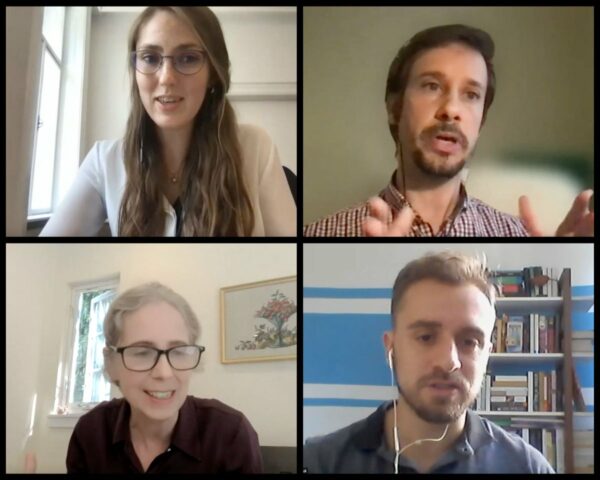
Concrete recommendations to advocate for civil society participation in national UNCAC implementation include conducting public information campaigns urging governments to include CSOs in the UNCAC implementation review process, organizing side events connected to civic space in collaboration with US think tanks, and working with the US and other governments in the framework of the Summit for Democracy (S4D).
- To promote a safe and enabling environment for civil society at the national and international level, we should use social media strategically to create better public perceptions of civil society.
- We should make use of monitoring resources that are already available to present good practices and develop evidence databases about the UNCAC to engage with the government and create a common understanding.
- Beyond that, we can focus on promoting civic space at the international level by creating a media kit for instance, or holding a press conference around any types of objections against NGO participation at the CoSP. To preempt objections, we can prepare templates for communication such as emails to other delegations. We should also think about sharing a joint civil society statement that focuses on limitations to civic space at the launch of the CoSP..
The Road to CoSP10
The Global Coalition Conference was a milestone for us in CoSP10 advocacy. Attendees told us they appreciated the expertise of the speakers, the diversity of the participants and exchanges on varying country contexts, and the interactive and dynamic nature of the breakout rooms, which allowed for practical advocacy planning and joint efforts to find solutions. Some participants expressed a desire to reflect more on lessons learned from previous CoSPs, longer breakout sessions and a space for networking. As a result of the GCC, many attendees intend to apply the advocacy ideas discussed in their own work, by coordinating with government officials and/or agencies, sharing resources with their peers, writing articles for the media, raising public awareness and fostering interaction with relevant stakeholders ahead of the CoSP. In addition, several CSOs are interested in organizing side events at the CoSP10, within their area of expertise.
Over the three days of the conference, we discussed whistleblower protection, political financing, public procurement, beneficial ownership transparency and civic space – all of these topics and different anti-corruption tools link to each other. Civil society action is crucial in all of these areas. Like parts of a big puzzle, the more pieces we have in place on the national and global level, the clearer the picture becomes and the more the public can understand what is happening.
What’s next? We will start our follow-up advocacy to the Global Coalition Conference and look forward to your engagement through our different mailing list communities (sign up here) and in our regional meetings. Between September and November, we plan to have another 1-2 virtual CoSP briefings for civil society, to discuss any objections to CSOs (though we hope there will be none) and what to do about them, and to discuss modalities for participation in the CoSP and entry points for you to contribute. On 10 December, the day before the CoSP starts, we will have a chance to contribute to the US-hosted Civil Society Forum, where the UNCAC Coalition will lead a coordination of our on-ground advocacy. The forum includes 5-6 breakout sessions for civil society to provide input to resolutions in person, hopefully with State representatives. During the 10th CoSP, 11-15 December 2023, as usual, we will have daily check-in meetings for civil society to touch base and coordinate our work.
We would like to thank all participants, moderators, and panelists for their valuable contributions to the Global Coalition Conference. Let us walk the road to CoSP10 together to take your advocacy ideas further.




